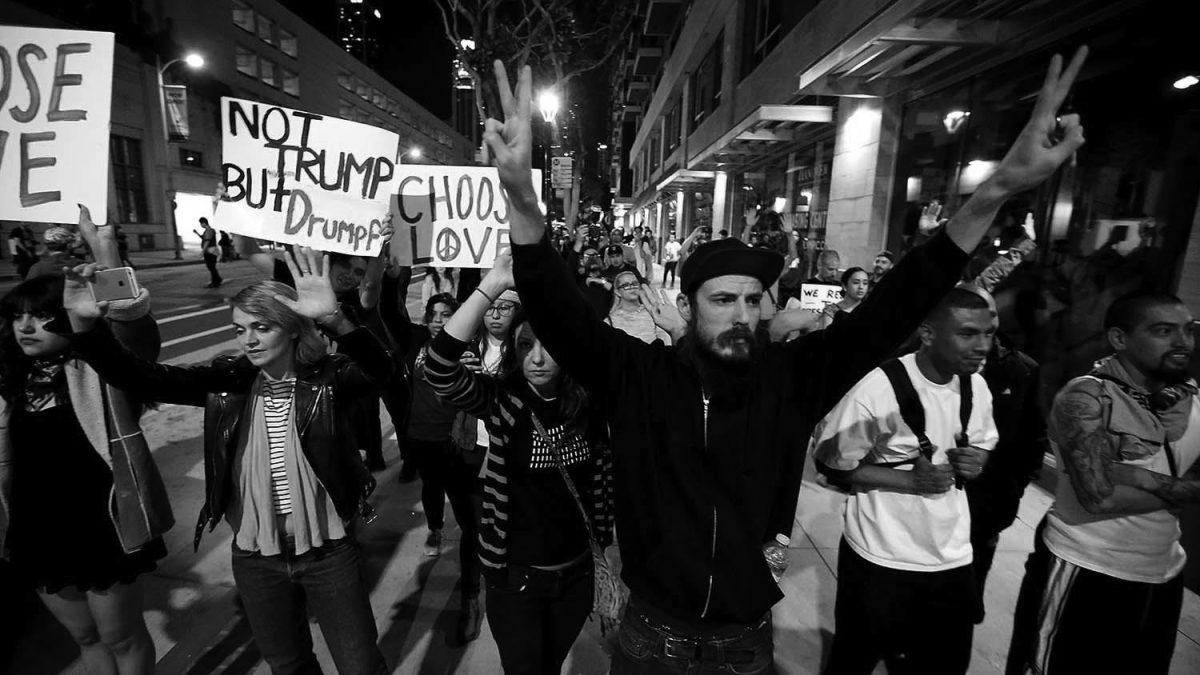Protestors speak for their cause
By Brendan Villena
Staff Writer
Thousands of anti-Trump protesters across the United States have taken to the streets since president-elect Donald Trump won the 2016 election. Riots across the country have only increased in intensity. Protestors, or, justice seekers, are rightfully utilizing the liberties provided for them in the Constitution to express discontent over the results of the election.
Peaceful protests are explicitly protected by the First Amendment, which states that “Congress shall make no law […] abridging the freedom of speech, or of the press; or the right of the people peaceably to assemble, and to petition the Government for a redress of grievances,” and should be respected as such.
The understandable purpose for the peaceful protests is to push for compromise and to influence some of the policies that Trump plans on implementing in office. Protestors also wish to oppose Trump’s viewpoints on groups he targeted over the course of his campaign, such as the LGBT community.
The anti-Trump protests are reminiscient of the famous March on Washington protest, in which Martin Luther King Jr. gave his “I Have a Dream” speech and led a band of more than 20,000 people at the Lincoln Memorial in Washington D.C.
His protest for civil rights was a landmark accomplishment for African Americans modern protests have the same potential to make history for marginalized groups.
“I’m out here for my undocumented friends,” expressed protester Spencer Smith to CNN, when asked about Trump’s intention to deport undocumented immigrants. Spencer and his fellow protesters were fighting to protect the safety of about 11.4 million undocumented immigrants, according to the U.S. Department of Homeland Security.
Some protesters are simply frustrated at Trump’s behavior during his campaign and wish to protest his offensive standpoints on subjects such as gay marriage. Portland protester Rick Hofsheier wants to “send a message to Trump that there’s a good deal of America who doesn’t support his racist, misogynist statements,” according to the Washington Post.
The solution to this dilemma is to simply respect the First Amendment by resuming peaceful protests. Even though some protests were unnecessarily violent, the majority of them were not, and opponents of the Trump protests must recognize this. The poor choices of few should not infrgine on the constitutional rights of all. Effective protests can potentially open Trump’s eyes to some of the faults of his plans, such as the Trump Wall, and call for compromise.
These protests still serve a major role in making this presidential term more accommodating to a larger range of people, and inspiring the idea of a protest to change America.


